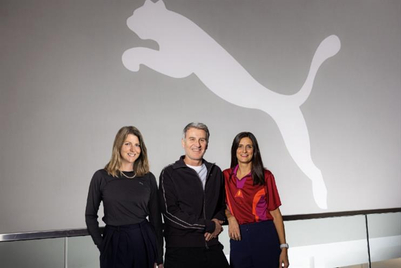
The pug in the bellhop uniform was never in any danger of losing its job.
When a brand appoints a new agency on a regional basis, a dramatic change in creative direction is often imminent. But for Expedia-owned Hotels.com, which moved creative from Grey to DDB in March following a pitch, there was never really any doubt that the dog would remain the star of the show.
The pug, first introduced in 2014 in Japan and extended into Asia in 2017, had already proven its worth, Chie Ikoma, the company's senior manager of APAC brand marketing, told Campaign Asia-Pacific.
"Our awareness grew because of the pug creative," she said. Quite simply, people like the pup—a connection that's like gold in a competitive segment.

"There are so many OTAs [online travel agencies] who are selling exactly the same things," Ikoma added. "And also, customer loyalty to a brand is very low, because they pick the hotel by price most of the time. So that is the reason why we had to prioritise how we are emotionally connecting with consumers."
That doesn't mean nothing has changed in Hotels.com's new campaign, which has just launched in Hong Kong and Taiwan and will hit Japan on 14 November.
Japan still had its own version of pug-oriented creative last time around. But since then the company has beefed up its in-house marketing team, dividing duties among a team of four to allow more time to focus on strategy, Ikoma said. In addition, with a new emphasis on customer-centricity, the brand HQ had developed clearer guidelines and a better sense of its target consumers and tone of voice, she added. With DDB onboard to bring all that it to life, the time was right to unify.
"Now we can deliver that single, clear brand message to all the consumers," Ikoma said.
The company refined the role the uniformed dog plays while also bringing more rigour to the ad-development process. The work follows a dream-becomes-reality format, with the pug popping up in both phases.
"The experience of rewarding yourself with a getaway is after all an emotional one, and we hope that our campaign gives the audience a taste of that rewarding feeling you get from booking with Hotels.com,” Jamal Hamidi, ECD of global business with DDB Group Hong Kong, said in a media release.
A customer-centric focus also meant some release of control for the in-house team. "Previously, the marketing managers decided the creative based on which one they liked best," Ikoma shared. This time, the company worked with Kantar for focus-group feedback and with RealEye, which provides moment-by-moment tracking of emotional responses to video using facial-recognition technology.
The focus groups saw two very different treatments: one close to the final form and a completely CGI-driven version with a more involved story. Despite the in-house team favouring the latter, the 'Reward yourself' concept won out, and audiences clearly favoured the real animal to the CGI version, Ikoma said. RealEye's feedback led to several tweaks of the final product. Unsurprisingly, many of these involved the dog.
"Whenever they don't see the pug, emotional engagement is down," Ikoma said.
The new campaign uses the same creative across the markets (the video window above shows the Hong Kong versions), although elements such as voiceover talent are being varied from market to market.
The launch of the “Reward yourself” campaign coincides with a significant discount offer running until Singles Day. The brand also has some 'Travel diary' adventures in store for the pug, some of which will attempt to improve understanding of the brand's 'buy 10 nights get one free' reward system.
Thailand and Singapore are not priority markets for the brand at the moment, so they won't see this campaign. Meanwhile, Korea still has a different creative approach, though Ikoma said the company will be considering whether to send in the pug there as well.
CREDITS
DDB Group:
Chief Strategy Officer: Andreas Krasser
Executive Creative Director, Global Business: Jamal Hamidi
Regional Business Director: Justin Bonnett
Creative Strategist: Karen Lew
Account Manager: Natalie Chan
Producer: Hidi Lee
Art Directors: Matthew Kwok, Natalie Parengkuan, Aaron Cheng, Sam Wong
Copywriters: Daniel Heng, Kelvin Wong, Norman Yau, Phoebe Chan
Associate Creative Director: Christel Chong
Group Creative Directors: Florence Lee, Yuko Fukuba Johnsson
Concept Visualisers: John Chan, Linus Kwong
Film Production:
Director: Michael Lee
Producer: Thomas Leung
Production Company: F&S Multimedia Company
Post Production: Ping Pong Music: Schtung Music
Client Executives:
APAC Senior Manager Brand Marketing: Chie Ikoma
Global Senior Director Brand Marketing: Mike Wolfe
HKG & TWN Brand Marketing Manager: Mary Tang
APAC Social Media Manager: Anson Leung
APAC Media Manager: Min Jae Kim
APAC PR Director: Zoe Chan


.jpg&h=334&w=500&q=100&v=20250320&c=1)

.jpg&h=334&w=500&q=100&v=20250320&c=1)


.jpeg&h=334&w=500&q=100&v=20250320&c=1)
+(1).jpg&h=334&w=500&q=100&v=20250320&c=1)

.jpg&h=334&w=500&q=100&v=20250320&c=1)
.jpg&h=334&w=500&q=100&v=20250320&c=1)



+Effie+HK+00.JPG&h=268&w=401&q=100&v=20250320&c=1)



